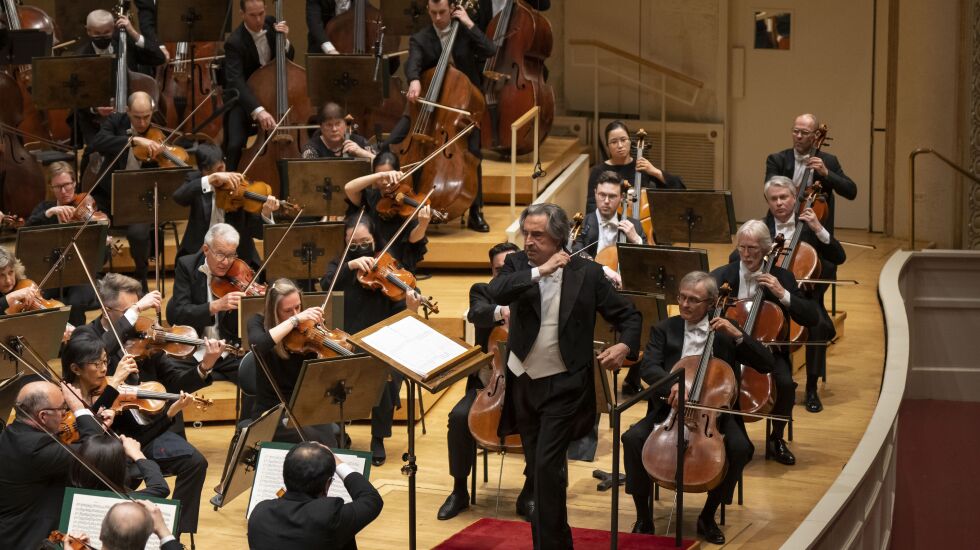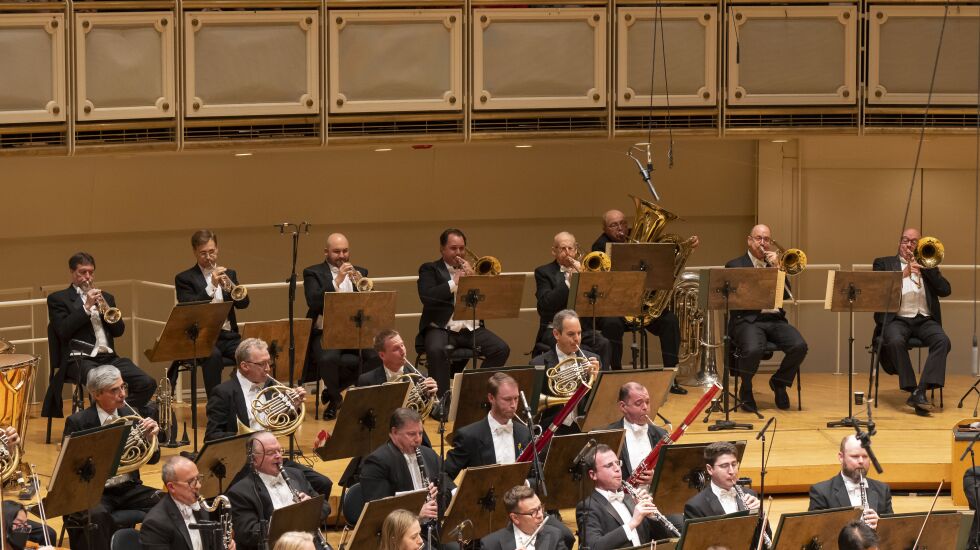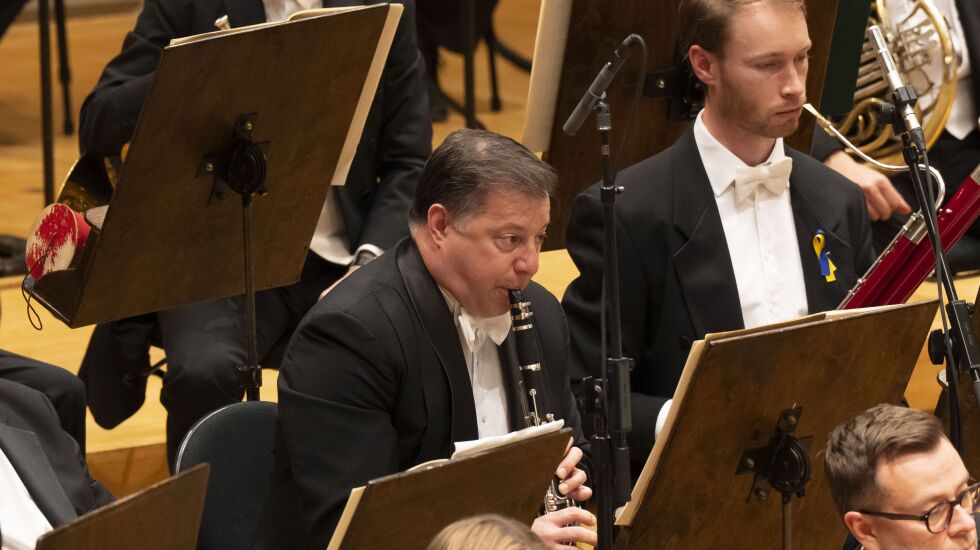
The final countdown to the June conclusion of Riccardo Muti’s 13 seasons as the Chicago Symphony Orchestra’s Zell Music Director began Thursday evening as he returned to Orchestra Hall for his penultimate residency in that position.
This program, which continues for two more performances, boasted no flashy soloists, and there was no need of them. Instead, the audience had a chance to just zero in and appreciate the veteran conductor and an already-great orchestra that he has carefully honed and stretched.
To grasp what he has accomplished during his tenure, one needed only hear the CSO’s thrilling take on Sergei Rachmaninoff’s Symphony No. 2 in E Minor, Op. 27, which culminated the concert with playing at the highest possible level.
Some conductors present this work with certain trims, because it can seem inflated and overly long. But Muti chose to perform the hourlong symphony in full, and he made sure the energy never flagged and the orchestra’s focus never wavered.
What the conductor delivered was not so much an interpretation imposed on the music, but more a fresh, organic realization of this music, paying due attention, as has been said before, to even the most minute contrasts in tempo, dynamics and texture.
During a rehearsal earlier in the day for this concert, Muti made the point that it was important when playing this work not to add sugar to already sweetened coffee. That wise approach could be heard particularly in the second movement, where he underlined the sense of edginess and unsettledness and nothing was smoothed over.

Perhaps most important, Rachmaninoff’s glorious melodies and voluptuous harmonies, especially in the slow third movement, provided an ideal showcase for every section of the orchestra. None impressed more than the orchestra’s strings, from the handsome, rumbling basses at the work’s onset to the plush, soaring violins.
There were also plenty of opportunities for individual instruments to shine, including guest bass clarinetist Pavel Vinnitsky and English hornist Scott Hostetler. Deserving special note was principal clarinetist Stephen Williamson, who in his extended, pensive solos has never sounded better.
Anchoring the evening’s first half was the world premiere of “Transfigure to Grace,” Suite for Orchestra by Jessie Montgomery, the CSO’s Mead Composer-in-Residence who has recently moved from New York to Chicago.
The 41-year-old composer has established herself as one of the top American composers of our time with an original musical voice and solid sense of craftmanship, qualities that were both amply in evidence in this second of three commissions from the orchestra.

“Transfigure to Grace” emerged from a chamber-music score that Montgomery composed in 2019 for the Dance Theatre of Harlem. Titled “Passage,” it commemorated the 400th anniversary of the arrival of the first enslaved Africans to America.
This work, ably handled by Muti and the orchestra, is constructed of overlapping cross-currents of iterative melodic bits and rhythmic pulses with an emphasis on the off beats that gives everything a spare, slightly off-center feel. Offering the only extended sense of melody through much of the piece are mournful French horn solos, beautifully performed by Daniel Gringrich, associate principal French hornist, that serve as transitions between the sections.
Though strangely not discussed in the program notes, the final few minutes of this piece offer the kind of transfiguration and ultimately grace suggested by the work’s evocative title, as the music blends and becomes more reverential and mystical.
The program opened with Richard Wagner’s Overture to “Tannhäuser,” a famed opera that combines two legends and offers two different musical worlds. Felix Mendelssohn first presented the overture as a concert piece in 1846, and the CSO’s first music director, Theodore Thomas, programmed it during the ensemble’s first season in 1891-92.
Though summoning the necessary punch and urgency when called for, Muti and the orchestra offered a measured, unhurried and ultimately satisfying reading.







